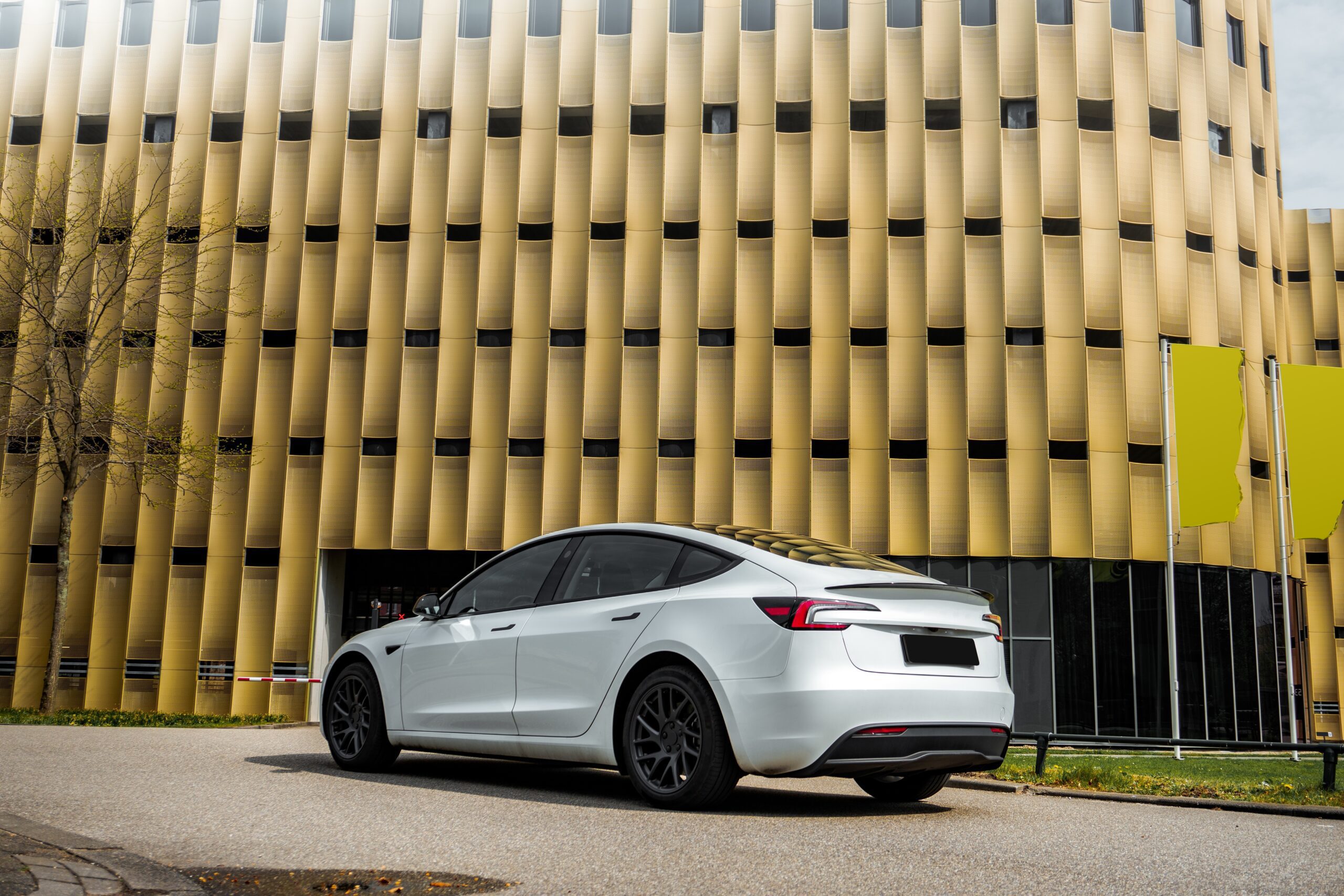As EV adoption accelerates, Milton Keynes’s forward-thinking mentality once again sees it driving the change.
With electric vehicle (EV) adoption no longer an episode of Tomorrow’s World, the UK is accelerating into an electric future, with EV adoption climbing steadily and infrastructure expanding at pace. But while headlines often focus on charging rollout (which still lags where it needs to be) and consumer uptake, a quiet revolution is under way in the manufacturing sector – particularly in Milton Keynes, where companies like Helix are turning the city into a national hub for high-performance electric
motor and inverter production.
The UK’s electric vehicle (EV) market is showing signs
of maturity in 2025. According to the latest industry data:
- 70% of consumers now say they’re likely to buy an EV within five years – up from 65% last year.
- 88% of existing EV drivers report a positive ownership experience, with more than half actively recommending EVs to others.
- The number of EV ‘sceptics’ has dropped to 18%, down from over 25% just two years ago.
This sort of data suggests that the electrification of transport is no longer just a policy ambition driven down on to the sector by successive governments – it’s a commercial reality. From sales and leasing to servicing and infrastructure, the wider automotive landscape is adapting to this new EV reality. For businesses operating in fleet management, leasing, charging infrastructure or clean tech, this signals an increasingly receptive and enthusiastic customer base, both business-to-consumer and business-to-business.
Charging infrastructure: catching up, but unevenly
Supporting this rise in EV adoption is a nationwide effort to improve charging infrastructure. The UK government remains committed to its target of 300,000 public EV chargers by 2030 which, at current rates of implementation, remains an optimistic (but an increasingly necessary) target that needs to be met. Progress is being made, as of mid-2025, and there are now more than 82,000 public charging devices in the UK, which represents a 44% year-on-year increase. Key to solving one of the questions often raised of the practicalities of EV travel when compared to traditional ICE vehicles, is the ability to ‘fuel up’ fast and it is encouraging that the sector is responding with rapid and ultra-rapid charging (50kW+) charging facilities growing fastest, particularly at motorway service stations and retail destinations.
However, as with other areas of key UK infrastructure (broad- band fibre and mobile phone coverage being some of the others) regional disparities remain, while London boasts over 275 chargers per 100,000 people, areas like Northern Ireland and parts of the north west still fall below 50 per 100,000.
For businesses looking to expand EV fleets or serve electric customers, this inconsistency presents challenges. Urban areas may be well served, but rural and semi-urban communities remain woefully underserved highlighting one of the main issues the mass take up of EV still faces. That said, the EV charge continues and ultimately represents opportunities for investment and innovation in the wider sector for those with the vision to pursue them.
Engineering the future of automotive mobility
Against this backdrop of national transformation, Milton Keynes continues to affirm its long-held reputation for carving out a unique identity in its approach to looking to the future – no longer just as a progressive city in terms of design and smart transport, but as a centre for advanced electric powertrain manufacturing, crucial to the viable long-term future of EV take up.
At the heart of this evolution is Helix, a company that has rapidly gained international recognition for its power-dense electric motors and inverters used in high-performance, luxury and light-commercial EVs.
Founded as Integral Powertrain, Helix has recently doubled down on EV innovation with the company’s technology already being in use across motorsport, aerospace and high-end automotive applications and there’s something in all of this. The company’s growth signals a broader trend: repatriation of high-value EV component manufacturing back to the UK. As OEMs look to secure domestic supply chains and reduce exposure to geopolitical and logistical risk, suppliers like Helix (and cities like Milton Keynes) are positioned to play a pivotal role.
A thriving ecosystem and the road ahead
Helix isn’t alone. The Milton Keynes area is quickly becoming a magnet for EV-related R&D, engineering services and clean-tech manufacturing. The city’s strong transport links, access to a skilled workforce, tier one professional services, and a forward-thinking business community make it an ideal location for companies focused on the future of mobility.
Milton Keynes is proving that the UK’s EV story is not just about sales figures or government targets – it’s also about being part of the march to build a 21st Century industrial base, anchored in clean technology and innovation. As adoption increases and infrastruc- ture catches up (which it will need to continue to do at some pace to meet aggressive government targets), it will be cities like Milton Keynes and companies that invest now (like Helix and its regional partners) that help define the UK automotive sector as it undergoes its biggest transformation since the dawn of the motor car more than 125 years ago. For business leaders watching the EV space, the message is clear: the electric future is arriving faster than expected (or, indeed, some may want!) but it feels like the mass take up of EV is now inevitable and Milton Keynes is well positioned to play a pivotal role in that change.
Tom Redman is a corporate partner at Howes Percival LLP and automotive sector legal specialist, routinely advising top 25 franchised and independent motor dealer groups on their UK M&A acquisitions and disposals programmes.
To find out more, visit their website.



















